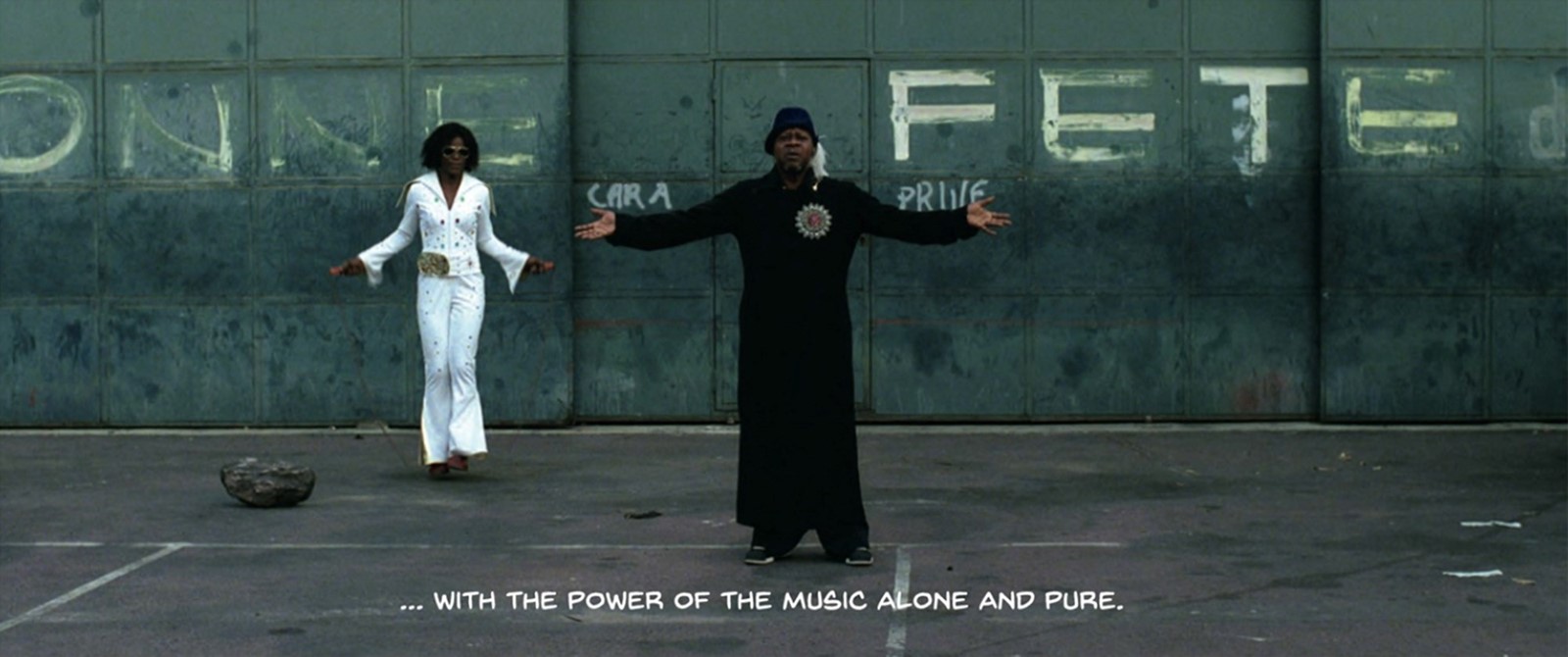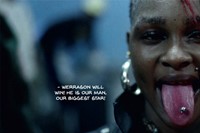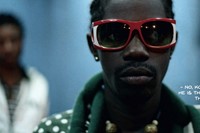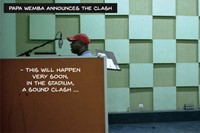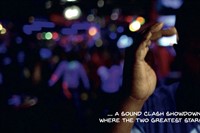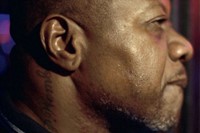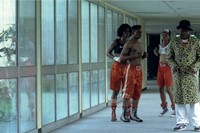Carsten Höller has been travelling to the Democratic Republic of Congo, undeterred by its long history of conflict, for many years. It remains one of his favourite places on earth. The artist’s love of Congolese rumba — a body-shaking and often politically charged musical style — has permeated several of his works, from the Double Club, a temporary Congolese-Western nightclub with Fondazione Prada, to Fara Fara, a two-channel film installation portraying a sound clash between two of the DRC’s biggest stars. The ever inventive artist here creates a timeline of the city-wide musical frenzy with stills selected from the film.
“It will make this town dance upside down. The power of the music alone and pure.” A lone, prophetic voice thrills the air. Rich and mellifluous, it belongs to Papa Wemba, the “father of Congolese rumba”. He is announcing an epic musical contest, a fara fara or sound clash between two of the Democratic Republic of Congo’s biggest musical stars, Werrason and Koffi Olomide.
All three feature in artist Carsten Höller’s 13-minute film installation, Fara Fara. A rare, euphoric event, a fara fara (meaning face-to-face in Lingala) is an endurance test between two musical titans playing on adjacent stages. Whoever plays longest, wins. In the film – a construction of one such event, played across two screens – Papa Wemba announces the clash, auditions shortly commence, and the contestants and their sizeable entourages prepare for battle in fabulous style. Indeed, Congo is home to La Sape (Société des Ambianceurs et des Personnes Élégantes, or The Society of Ambiance-Makers and Elegant People), a loose group of men – and some women – known for their irrepressible sartorial flamboyance and penchant for Japanese clothing, especially Comme des Garçons. Soon, the big day arrives: a burning sun rises over Kinshasa and vast crowds begin to gather. The beer flows, hips swing hypnotically, and arms are raised to the sky as music booms across the city. At 9am the next morning, a winner is declared.
“It will make this town dance upside down. The power of the music alone and pure” – Papa Wemba
A fara fara is a massive gathering, factional as much as euphonic, and it doesn’t always come to pass. Some years ago, Höller was in Paris waiting for a sound clash between Werrason and Olomide to begin, when one of the musicians declined to show and the event was cancelled. Disappointed, though not unprepared for such an outcome, Höller retreated to a Congolese restaurant to meet Miuccia Prada, who had travelled to Paris expressly to see what a fara fara might involve. Höller’s film, a long-term labour of love that debuted at the most recent Venice Biennale, could just as easily never have happened. An account of one research trip, including photographs from numerous visits to the DRC since 2001, was even published last year under the title “Fara Fara – a Film Not Made”.
The Stockholm-based artist, best known for his delirious steel slides, giant mushroom sculptures, and upside-down goggles, first fell in love with Congolese music in a Benin nightclub in the Nineties. Since then, he has travelled to the DRC many times, arranged for Congolese musicians to hold concerts in Sweden, and in 2008 opened the Double Club in London, a playful and effortlessly chic cross-pollination of Congolese and Western culture that was the place to be seen until its lamented closure the following year. Höller’s work often involves binaries, from the ostensibly neat cultural split of the Double Club, to the pairs of identical twins in his 2005-15 series Twins, to the two entrances visitors had to choose between to access his blockbuster retrospective, Decision, at the Hayward last summer. As Höller once said: “It’s a very human condition, really, to be double.”
In this exclusive project for AnOther, the ever-inventive artist transposes stills from Fara Fara to a Turkish-style comic strip.
Papa Wemba was born on June 14, 1949, in the Belgian Congo and died on April 24, 2016, in Abidjan. This art project appears in the S/S16 edition of AnOther Magazine.
